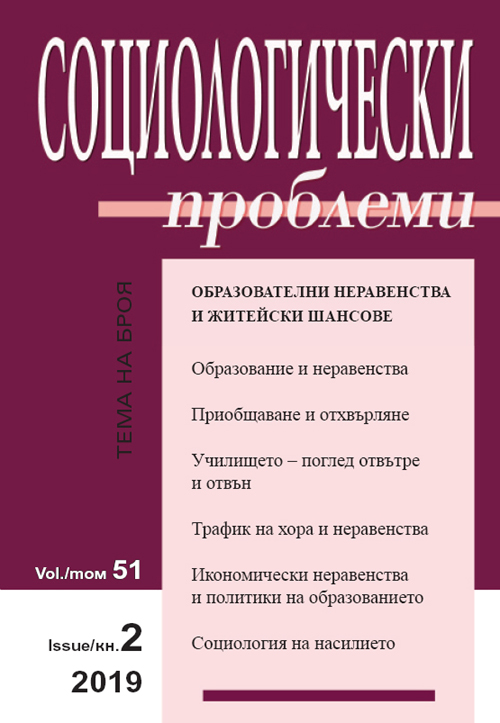Чие е това дете? Респонсибилизацията на семейството в образованието като генератор на социални неравенства
Whose Child Is This? Responsibilization of Families in Education as a Generator of Social Inequalities
Author(s): Milena IakimovaSubject(s): Social Sciences, Education, School education, Sociology of Education
Published by: Институт по философия и социология при БАН
Keywords: educational inequality; intellectual achievements; cultural capital; responsibilisation; school competition; social versus educational function
Summary/Abstract: The paper is based on discourse analysis and secondary data analysis conducted in the collective research “Educational Inequalities and Life Chances”. Three knots of issues are outlined in the first part of the paper, while the second represents the discursive strategies of the main actors identified against the background of the problematic knots.In the public talk about education, educational crisis and educational reform, a particular discursive line prevails: we called it project-entrepreneurial. It renders families responsible pupils’ educational achievements, constituting their identity as responsible for children’s ‘motivations’. This shared discursive reservoir however is enacted toward varying strategies by public and administrative authorities, by business structures and spokesmen, by the activist segment of the NGO sector and by its think-tank segment. Varying as they are, these strategies of enactment of the shared reservoir reinforce the effects of the dominating discourse. Students are measured and recognised according to their intellectual achievements, reduced to the educational motivations acquired within the family. This supports and legitimises a process of an early selection of children according their intellectual achievements, which in turn has the function of showing the desired families that the school selects its students, thus reproducing the cultural capital and legitimising parental hidden power.Within the competitive framework in which they are positioned, schools behave completely rationally – the successful ones get even and ever more successful, while (educationally) unsuccessful ones occupy a niche that is left unoccupied – the niche of social work and assistance. Thus the system, though producing and reproducing inequality, is preventing social exclusion.
Journal: Социологически проблеми
- Issue Year: 51/2019
- Issue No: 2
- Page Range: 466-482
- Page Count: 17
- Language: Bulgarian
- Content File-PDF

